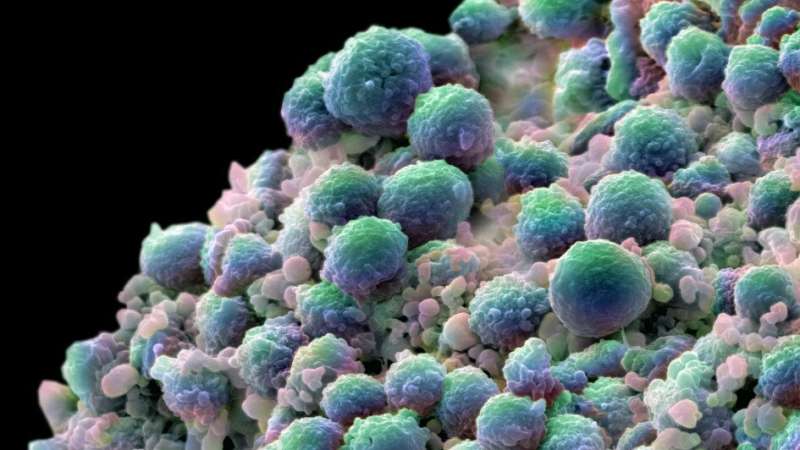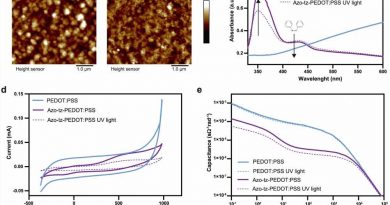New BRCA-targeting drug could offer hope in treating advanced prostate cancer

Talazoparib, a new precision drug, can keep cancer in check in some men with advanced prostate cancer who have run out of options, a phase II clinical trial shows.
The targeted drug—a type of treatment called a PARP inhibitor, which specifically targets cancer cells with faulty DNA repair genes—slowed down tumor growth in some patients with advanced prostate cancer.
Men with BRCA mutations responded particularly well to talazoparib—around half of patients with BRCA2 or BRCA1 defects responded to the treatment, which halted tumor growth in some cases, demonstrating the effectiveness and safety of the drug for the first time in prostate cancer.
The TALAPRO-1 trial was led by Professor Johann de Bono at The Institute of Cancer Research, London, and The Royal Marsden NHS Foundation Trust. The trial involved more than 100 patients with advanced prostate cancer whose tumors had alterations in one or more of 11 DNA repair genes and who had been previously treated with chemotherapy and enzalutamide and/or abiraterone.
Treatment response
The latest results of the study, funded by Pfizer, are published in The Lancet Oncology and highlight how crucial it is to carry out genomic testing in prostate cancer patients—in order to identify different patient groups based on their genetics and to tailor treatment accordingly.
Almost a third of all patients—31 out of 104 (30 percent) – who received talazoparib as part of the trial responded to the drug. Men with BRCA mutations had the highest response rates—46 and 50 percent of those with BRCA2 and BRCA1 alterations, respectively, responded to the treatment.
Although the drug’s anti-tumor effect was most remarkable against tumors harboring BRCA alterations, some men with tumors harboring mutations in PALB2 or ATM also responded to talazoparib.
Kinder than chemotherapy
The researchers also found that using talazoparib delayed disease progression by an average of 11.2 months in men with prostate cancers with faulty BRCA genes—extending the time before prostate cancer had a chance to spread further.
Overall, for men with any of the 11 faulty DNA repair genes who were given talazoparib, the length of time before their cancer got worse was, on average, 5.6 months.
The most frequent adverse effect was anemia, but few patients discontinued talazoparib because of the side effects. Overall, talazoparib was well-tolerated, and since it is a targeted treatment, it is a much kinder option for patients than chemotherapy.
PARP inhibitors like talazoparib work by stripping cancer of its DNA defenses. Cancer cells with DNA repair gene faults—such as BRCA, ATM or PALB2—already have a defective DNA repair system. By using a drug to block PARP, which helps repair DNA when it is damaged, we can render cancer cells unable to repair themselves.
A team of ICR researchers, led by Professor Alan Ashworth, first described the sensitization of BRCA tumors to PARP inhibition. Talazoparib was approved by the EU in 2019 for some patients with advanced breast cancers and researchers now hope it will join olaparib in becoming one of the first genetically targeted treatments for prostate cancer too.
‘Helping men who have run out of options’
Study leader Professor Johann de Bono, Professor of Experimental Cancer Medicine at The Institute of Cancer Research, London, and Consultant Medical Oncologist at The Royal Marsden NHS Foundation Trust, said:
“These results are yet another demonstration that PARP inhibitors work well in some men with prostate cancer—delaying the spread of the disease and extending their lives so they can have more quality time with their families.
“Men with advanced and heavily pre-treated prostate cancer, who also had faults in DNA repair genes, responded very well to the targeted drug talazoparib, especially those who had BRCA mutations in their tumors.
Source: Read Full Article



